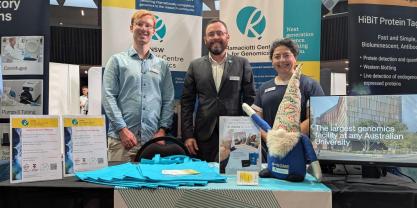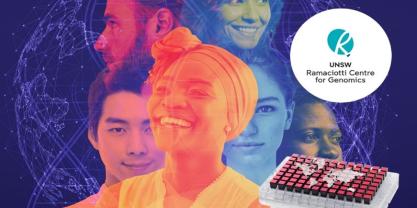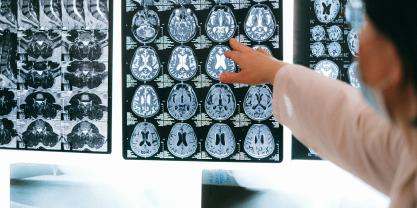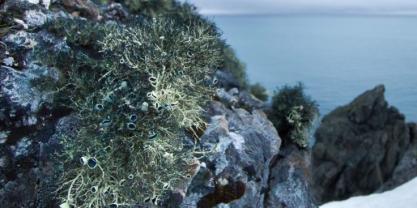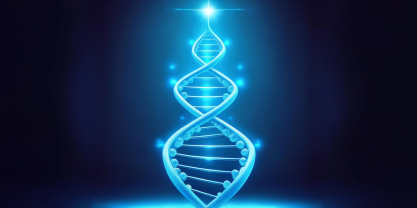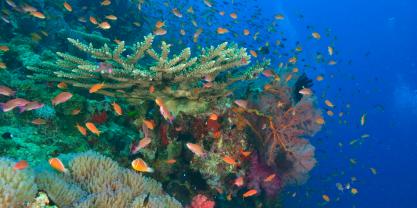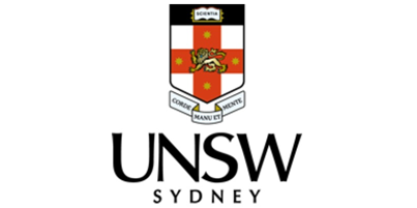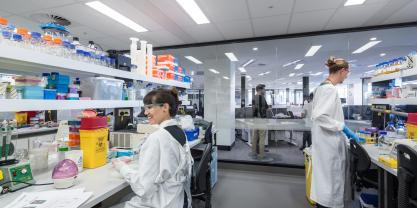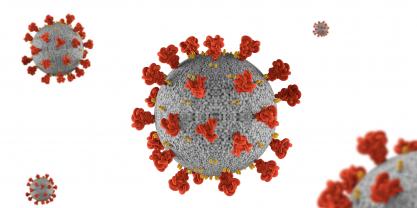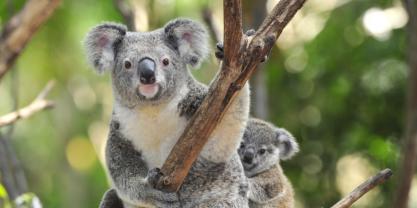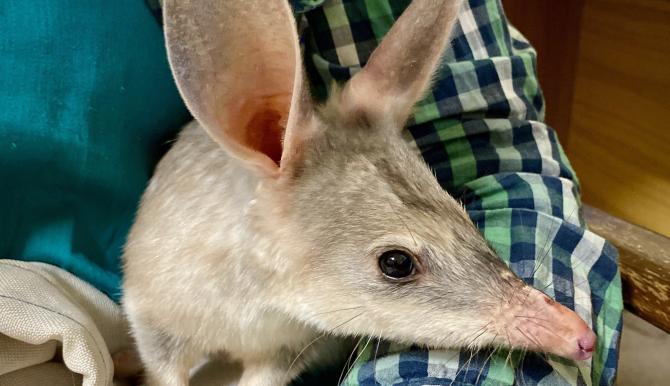
Image source: Save The Bilby Fund
The Ramaciotti Centre was delighted to take part in yesterday's UNSW Laboratory Research and Services Expo, held in the Roundhouse (E6) at UNSW’s Kensington Campus.
We’re thrilled to announce our first Applied Biosystems Axiom™ PangenomiX Array project!
Diffuse Midline Glioma (DMG) is a type of malignant, aggressive brain tumour that mostly affects children, and has a poor prognosis of <2 years survival post-diagnosis for
Ramaciotti clients have used our Long-Read and Sanger sequencing services in the discovery of a new, naturally autofluorescent fungal species from Antarctic soil
Microbiomes can be helpful or harmful, playing important and dynamic roles in the development and regulation of numerous physiological pathways of their host.
The Ramaciotti Centre for Genomics will be closed over the Christmas and New Year period from midday Monday 23rd December 2024 and will re-open at 9am Monday 6th January 2
It is well known that coral reefs consist of a complex and interconnected assemblage of symbiotic microorganisms living both on the surface and within the tissue of the host coral animal.
We are excited and proud to share a recent achievement at the Ramaciotti Centre for Genomics, showcasing an example of the impactful outputs from our high-quality data and the diverse expertise of
We are excited to introduce Martin Smith, the new Director of the Ramaciotti Centre for Genomics, who joined us four months ago.
COVID-19 has had a dramatic impact globally and locally, and will continue to do so for some time.
A team of scientists are taking the fight to protect koalas to a new level with a world-first ‘genetic sequencing’ program that could protect the species from disease and other threats.

